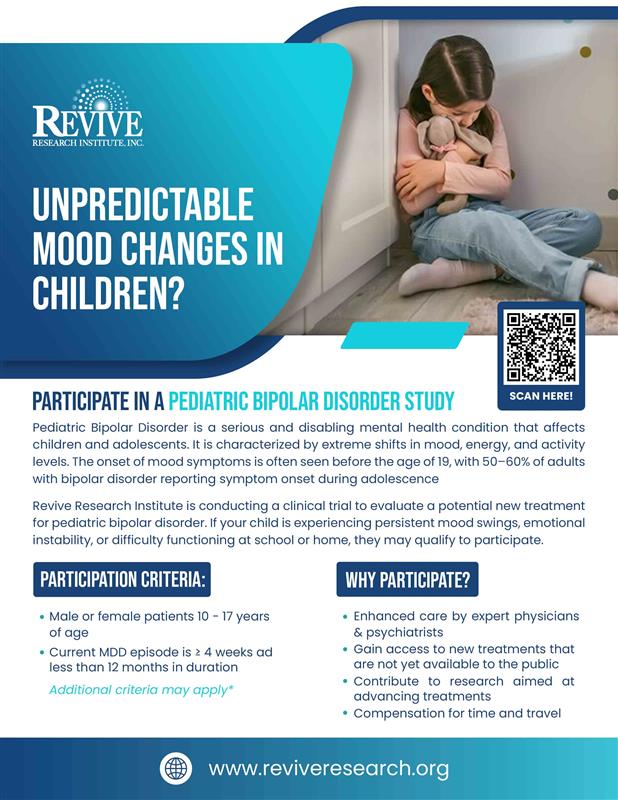Bipolar Depression Clinical Trials in Illinois
Is Your Child’s Behaviour Difficult to Predict?
Explore Bipolar Depression clinical trials investigating potential treatment options!
Bipolar disorder in children is a severe and disabling mental health condition that impacts children and adolescents. It is marked by intense changes in mood, energy, and activity levels. Symptoms often begin before age 19, with 50–60% of adults with bipolar disorder reporting their first signs during adolescence.
Revive Research Institute is conducting Bipolar Depression clinical trials investigating novel bipolar depression treatment option for children that may help manage symptoms.
You may qualify for clinical trials for bipolar depression in children if you:
- Male or female patients 10 – 17 years of age
- Current MDD episode is ≥ 4 weeks ad less than 12 months in duration
- Additional criteria may apply*
*Take part in this Bipolar Depression clinical trials research study at no cost to you or your private medical insurance. In addition, all participants get free study-related treatment from Doctors and Healthcare experts.
*If you are interested in participating in the clinical trials for bipolar depression in children, or would like more information, please fill out the form so we can determine if you qualify for the study and contact you. Note that this is an entirely voluntary decision. If you change your mind about participating in a study, you can leave at any time.


